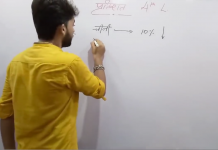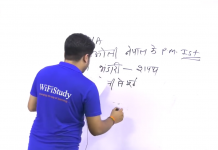Unsure of what to do when you encounter an accident? Here’s help from the docs
At an accident site, there’s often no clear protocol that’s followed, with people huddling around the site and someone just about calling 100. “Road safety is everyone’s responsibility, because every fatal crash or serious injury has a long-lasting effect on the family and friends left behind,” says K K Kapila, chairman, International Road Federation (IRF), an organisation based in Geneva.
While informing the police is a priority, if you’re on the road at the time, there are other ways you can help too. It’s important, because a recent Lancet study, India State-Level Disease Burden Initiative, that compared 1990 data with 2016 numbers, pushed road accidents up to position 10, compared to the previous 16, on the DALYs number. This is the Disability-Adjusted Life Years, or the number of years lost by disability and premature death. Worse, the age group that recorded the highest number of deaths due to transport injuries was the 15-39-year-old set.
If you see an accident
Do stay calm and don’t drive away, says Dr K K Aggarwal, cardiologist and president at the Indian Medical Association. Then ask if someone has called for an ambulance, and if no one has, do so. Help children first.
Think A-B-C-D-E (airways-breathing-circulation-disability-evacuation), says Dr Rajendra Prasad, Senior Consultant Neurosurgeon, Indraprastha Apollo Hospitals, and Medical Director, Indian Head Injury Foundation, Delhi. Speak to the person and see if they talk back (to check if airways are open and the person is conscious). If not, see if the person is breathing by holding your finger in front of the nose. You don’t feel it? Lift the chin and jaw gently, so the tongue comes forward. Also check for something loose in the mouth that could be blocking the airway, such as dentures.
Try and avoid moving the person. This should ideally only be done by trained professionals. You could cause more damage (disability) than good in case of a spinal or head injury, even causing paralysis. If the person is vomiting or having a fit, gently roll him onto his side, while keeping the neck straight (place something under the head), so that no fluid goes into the windpipe and into the lungs. Loosen clothes and hold the person behind the neck, as you would a newborn baby, says Prof K Ganapathy, Past President, Neurological Society of India, Chennai. “Simply assume the person does have a spinal-cord injury, so you are extra careful,” he says.
Put away the water and soda, so often forced on people who are in trauma. You could cause them to choke.
Stop the bleeding, if any (circulation). If you find that a person is bleeding, bind the area tightly with a clean cloth, even if it is a dupatta.
Gently press the arms, legs, chest. If the person winces, it could be a sign of a fracture. If you can, make out where it is, form a split with whatever you find around (cardboard, even a scale from a school bag) to immobilise the area. Use a garment to form a sling, in the case of a breakage in the arm, says Dr Ganapathy.
When the ambulance arrives, give the professionals as much information as you can (evacuation).
Always carry surgical gloves, so you can wear them before you handle blood on the road. Make sure all your medicines in the first-aid kit are within the date of expiry.
To prevent an accident
Get a driver if you’re drinking or distracted and haven’t slept, for instance. Rash and drunken driving was a major cause of road accidents, says a government report.
Make sure your children don’t drive even with you in the car, as underage driving is another cause for accidents.
Avoid driving if there’s intense fog, as “poor visibility” was another reason of road deaths.
Wear a seatbelt, no matter where you’re sitting in the car. And a helmet, if you’re on a two-wheeler, yes, even on a cycle.
Have a list of emergency numbers handy in your glove compartment for easy access. Amongst these should be close relatives and friends, your physician’s phone number and that of a few ambulance services,’’ says Dr Anil Bansal, member of the Delhi Medical Association.
source













![CY_GATE_2019_PHYSICAL_SPECTROSCOPY_[ELECTRONIC_BASIC]_All IN ONE_[Short_Trick]_2018-19_PART_1ST - Videos](https://trends.edugorilla.com/wp-content/uploads/sites/8/2018/08/cy_gate_2019_physical_spectroscopy_electronic_basic_all-in-one_short_trick_2018-19_part_1st-218x150.jpg)



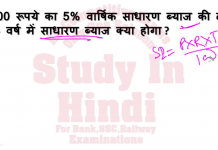


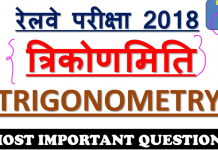
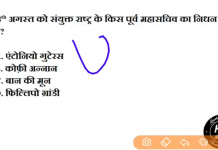
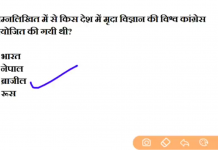
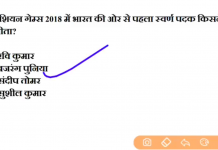





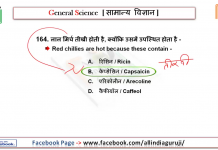

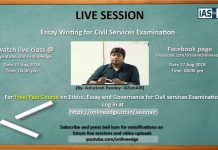
![24 August 2018 – The Indian Express Newspaper Analysis हिंदी में – [UPSC/SSC/IBPS] Current affairs - Videos](https://trends.edugorilla.com/wp-content/uploads/sites/8/2018/08/a520-218x150.png)
